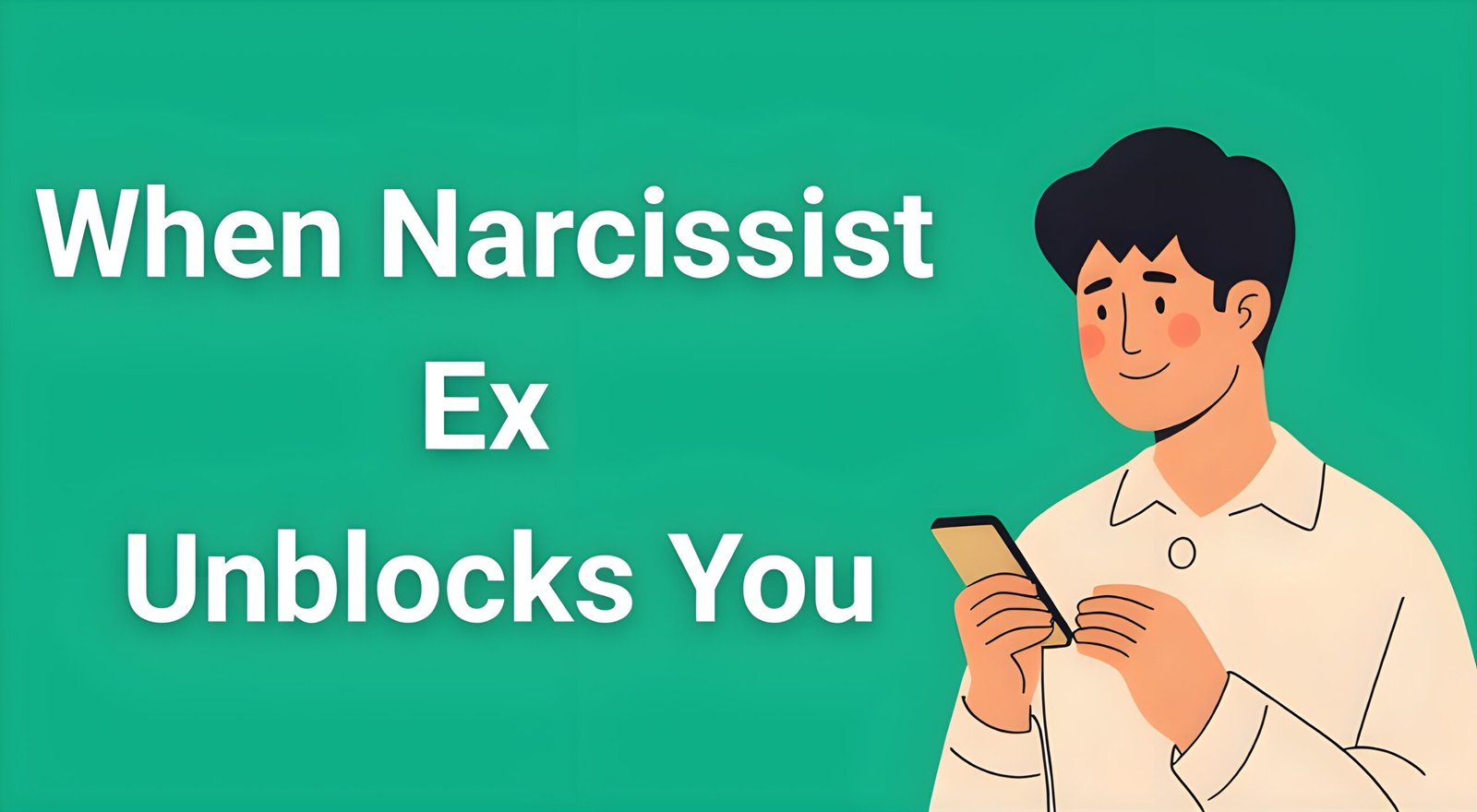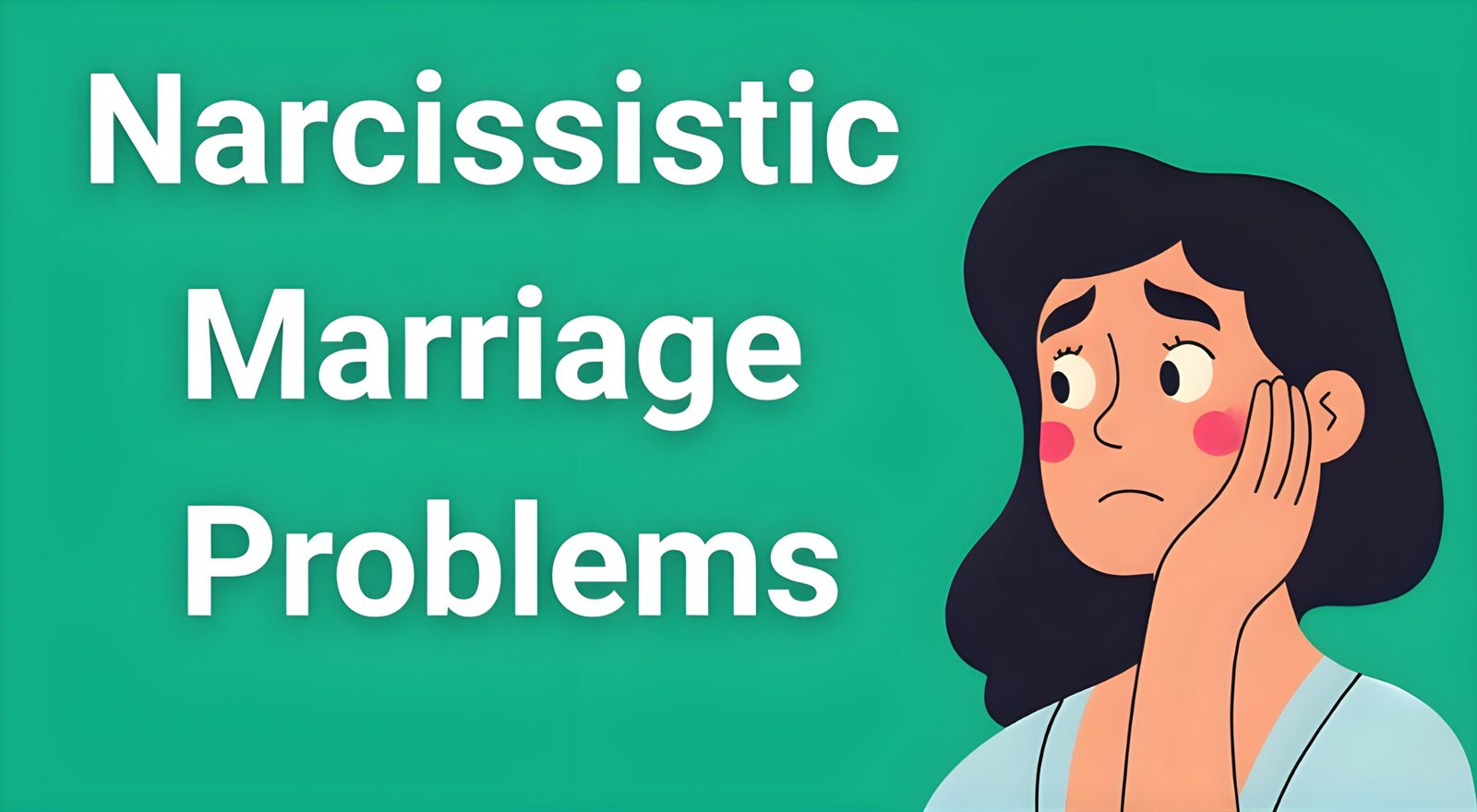That notification hits your phone like a lightning bolt. After weeks, months, or even years of radio silence, your narcissistic ex has suddenly unblocked you on social media. Your heart races, your mind spins with questions, and you’re left wondering: what does this mean? When narcissist ex unblocks you, it’s rarely the romantic gesture you might hope for. Instead, it’s typically a calculated manipulation tactic designed to regain control and access to what experts call “narcissistic supply.
- The Psychology Behind Why Your Narcissist Ex Unblocked You
- 6 Things to Expect When Narcissist Ex Unblocks You
- The Hidden Manipulation Behind Unblocking
- How to Respond When Your Narcissist Ex Unblocks You
- Warning Signs This Is a Hoovering Attempt
- Protecting Yourself from Further Manipulation
- The Trauma Bond Connection
- Moving Forward with Strength and Clarity
- Frequently Asked Questions
- Conclusion
If you’re feeling confused, hopeful, or even terrified by this sudden digital reappearance, you’re not alone. Understanding the psychology behind why narcissists unblock their former partners is crucial for protecting your emotional wellbeing and maintaining the progress you’ve made in your healing journey. This comprehensive guide will walk you through the six key things you should expect when your narcissist ex unblocks you, helping you see through their manipulation tactics and respond with strength and clarity.
The Psychology Behind Why Your Narcissist Ex Unblocked You
When a narcissistic ex unblocks you, it’s essential to understand that this action is never random or romantic. Narcissists operate from a fundamentally different emotional blueprint than healthy individuals. Their actions are driven by an insatiable need for narcissistic supply—the attention, admiration, control, and emotional reactions that feed their fragile ego.
The blocking and unblocking cycle is a form of intermittent reinforcement, a psychological conditioning technique that creates powerful trauma bonds. Just like a slot machine that occasionally pays out, the unpredictable nature of a narcissist’s attention creates an addictive pattern in your brain. The blocking phase serves as punishment and control, while the unblocking phase offers hope and the possibility of reconciliation.
Narcissists view their former partners as resources to be managed, not people with independent feelings and needs. When they unblock you, they’re essentially opening the door to regain access to whatever benefit you previously provided—whether that was emotional support, financial assistance, social status, or simply the ego boost that comes from knowing they can still affect you.
Research in neuroscience has shown that trauma bonds activate the same brain regions associated with cocaine addiction. The cycle of cruelty followed by affection creates powerful neurochemical reactions involving dopamine, oxytocin, and cortisol. Understanding this biological component helps explain why it feels so difficult to resist responding when your narcissistic ex suddenly reappears in your life.
6 Things to Expect When Narcissist Ex Unblocks You
1. The Silent Monitoring Phase
Don’t expect a flood of messages immediately after being unblocked. Many narcissists begin with what’s called “silent hoovering”—they unblock you simply to observe your life and gather information. They might view your stories, check your posts, or monitor your activity without making direct contact.
This surveillance serves multiple purposes. They’re assessing your current emotional state, checking if you’re dating someone new, evaluating your success or struggles, and determining the best approach for future manipulation. Think of it as reconnaissance—they’re gathering intelligence before launching their next campaign for your attention.
During this phase, you might notice them liking old photos, watching your Instagram stories within minutes of posting, or appearing in your “people you may know” suggestions across different platforms. This behavior is designed to make you aware of their presence without the vulnerability of direct contact.
2. The “Innocent” Reconnection Attempt
When narcissists decide to make contact after unblocking you, they often start with seemingly innocent messages. These might include:
- “Hey, how are you doing?”
- “I was just thinking about you”
- “I saw something that reminded me of you”
- “Happy birthday” (even if your birthday was months ago)
- “I hope you’re well”
These messages appear harmless on the surface, but they’re carefully crafted to test your responsiveness. They want to see if you’ll engage, how quickly you’ll respond, and what emotional tone you’ll take. Any response—even a cold or angry one—is considered a win because it proves they still have the power to provoke a reaction from you.
The “innocent” approach also serves as plausible deniability. If confronted about their intentions, they can claim they were just being friendly or checking on your wellbeing. This gaslighting tactic makes you question whether you’re overreacting to what seems like normal, polite contact.
3. The Hoovering Escalation
If their initial contact receives any response, narcissists typically escalate their hoovering attempts. Hoovering, named after the vacuum cleaner brand, refers to their efforts to “suck” you back into their orbit. This phase might include:
- Love bombing with excessive compliments and declarations of change
- Nostalgic references to good times you shared together
- Promises of therapy, personal growth, or behavioral changes
- Gifts, flowers, or other romantic gestures
- Emotional manipulation through claims of depression or loneliness
- Guilt trips about how much you meant to them
The hoovering phase is where many survivors find themselves most vulnerable. The narcissist remembers exactly which emotional buttons to push and which vulnerabilities to exploit. They might reference shared dreams, inside jokes, or intimate moments you thought were special, weaponizing your emotional history against your healing progress.
4. The Testing and Boundary Pushing
Once a narcissist has reestablished contact, they immediately begin testing your boundaries. This isn’t conscious malice in many cases—it’s an automatic pattern of behavior designed to assess how much control they can regain.
They might:
- Contact you at inappropriate hours
- Show up at places they know you frequent
- Reach out through mutual friends or family members
- Create fake social media accounts if you block their primary ones
- Send mixed messages that keep you confused about their intentions
- Alternate between being sweet and cruel to keep you off-balance
This boundary testing reveals crucial information about your current emotional state and the strength of your recovery. Narcissists are expert at finding the cracks in your armor—areas where you might still feel attachment, guilt, or hope for reconciliation.
5. The New Supply Showcase
One particularly painful aspect of being unblocked by a narcissistic ex is witnessing their new relationships. Often, they unblock you specifically so you can see their apparent happiness with someone new. This might manifest as:
- Posted photos with their new partner
- Public displays of affection on social media
- Check-ins at romantic locations
- Anniversary posts or relationship milestones
- Images of gifts or experiences they’re sharing with their new target
This behavior serves multiple manipulative purposes. It’s designed to make you jealous, question your decision to leave, and wonder if they’ve actually changed for someone else. In reality, their new relationship is likely following the same toxic patterns yours did—they’re simply in the idealization phase with their new source of narcissistic supply.
6. The Discard Redux
Perhaps most importantly, you should expect that any renewed contact with your narcissistic ex will eventually lead to another discard. Narcissists don’t unblock former partners because they’ve had genuine realizations about love or relationships. They do it because they need something—attention, validation, control, or resources.
Once they’ve extracted whatever they were seeking, or once you start setting boundaries and showing strength, they’ll likely discard you again. This cycle can repeat multiple times, with each iteration potentially becoming more emotionally devastating as your hopes are raised and crushed repeatedly.
The discard redux often comes suddenly and without warning, leaving you feeling manipulated and questioning your judgment for allowing them back into your life. Understanding this predictable pattern can help you protect yourself from falling into the same trap repeatedly.
The Hidden Manipulation Behind Unblocking
When your narcissist ex unblocks you, it’s crucial to understand the calculated manipulation behind this seemingly simple action. Narcissists are master strategists when it comes to emotional manipulation, and unblocking represents a carefully planned move in their psychological chess game.
The timing of unblocking is rarely coincidental. Narcissists often unblock former partners during vulnerable moments—holidays, anniversaries, major life changes, or when they suspect you might be moving forward with your life. They monitor your social media for signs of healing, new relationships, or professional success, then strategically time their reappearance to maximize emotional impact.
Intermittent reinforcement is the cornerstone of their manipulation strategy. By alternating between blocking and unblocking, periods of silence and sudden contact, they create an addictive cycle that mirrors gambling addiction. Your brain begins craving the “hit” of their attention, even though you consciously know the relationship was harmful.
The unblocking itself is a form of breadcrumbing—giving you just enough attention to keep you emotionally invested without offering any real commitment or change. They want to maintain you as what experts call “shelf supply”—someone they can access when their primary sources of narcissistic supply run dry.
How to Respond When Your Narcissist Ex Unblocks You
Understanding how to respond when your narcissist ex unblocks you is crucial for protecting your mental health and maintaining your healing progress. The most effective response is often no response at all, but this can be incredibly challenging when you’re dealing with trauma bonds and emotional attachment.
Maintain strict no contact whenever possible. This means not responding to messages, not viewing their social media profiles, and resisting the urge to check if they’ve viewed your content. Remember that any engagement feeds their narcissistic supply and encourages further contact attempts.
If you must respond due to shared children, legal matters, or other unavoidable circumstances, keep communication strictly business-like. Use the gray rock method—be boring, emotionless, and provide only essential information. Don’t share personal details about your life, emotions, or relationships.
Document all contact attempts for your own protection. Screenshot messages, save voicemails, and keep records of when and how they’re attempting to contact you. This documentation can be valuable if their behavior escalates to harassment or if you need to involve legal authorities.
For many survivors struggling with the neurological addiction that comes from trauma bonding, breaking free requires more than willpower alone. If you find yourself repeatedly drawn back into contact despite knowing better, you might benefit from understanding the science behind trauma bonds and implementing specific recovery techniques designed to rewire your brain’s response patterns.
Strengthen your support network during this vulnerable time. Reach out to trusted friends, family members, or support groups who understand narcissistic abuse. Having people who can remind you of the reality of your past relationship is invaluable when manipulation attempts make you question your memories.
Warning Signs This Is a Hoovering Attempt
Recognizing the warning signs of hoovering can help you maintain perspective when your narcissist ex unblocks you. Hoovering attempts often follow predictable patterns, and learning to identify these can protect you from being drawn back into a toxic dynamic.
False apologies are a common hoovering tactic. These apologies often lack genuine accountability and instead focus on minimizing their behavior or shifting blame. Watch for phrases like “I’m sorry you felt hurt” or “I’m sorry, but you also did…” These aren’t real apologies—they’re manipulative attempts to reopen communication without taking true responsibility.
Love bombing returns with a vengeance during hoovering attempts. They might shower you with excessive compliments, gifts, or romantic gestures that mirror the early stages of your relationship. Remember that this behavior is calculated to trigger your attachment and memories of when they seemed perfect.
Promises of change are another red flag. Narcissists often claim they’ve been in therapy, found religion, or had major realizations about their behavior. While people can change, genuine change takes time and is demonstrated through consistent actions over extended periods, not through dramatic declarations during a hoovering attempt.
Emergency situations or crises are frequently manufactured to create urgency around reconnecting. They might claim health problems, family emergencies, or financial disasters that require your support. These situations often disappear as quickly as they appeared once they’ve regained access to you.
Protecting Yourself from Further Manipulation
Protection from narcissistic manipulation requires both practical strategies and emotional healing work. Creating strong boundaries is essential, but these boundaries must be reinforced by internal healing that addresses the trauma bonds and attachment patterns that make you vulnerable to manipulation.
Implement technological boundaries immediately. Block them on all social media platforms, email accounts, and messaging apps. If you share children or have legitimate reasons for contact, consider using co-parenting apps or having a trusted third party facilitate necessary communication.
Develop emotional regulation skills to help manage the intense feelings that arise when your narcissist ex attempts to reestablish contact. Techniques like mindfulness meditation, deep breathing exercises, and grounding techniques can help you respond from a place of calm clarity rather than emotional reactivity.
Education about narcissistic abuse patterns is one of your strongest protections. The more you understand about manipulation tactics, trauma bonding, and the narcissistic abuse cycle, the better equipped you’ll be to recognize and resist future attempts at manipulation.
If you find yourself in a situation where you can’t immediately cut contact completely—perhaps due to shared custody, financial entanglements, or other practical constraints—learning specific survival strategies becomes crucial. There are specialized techniques for maintaining your emotional and psychological well-being even when full no-contact isn’t immediately possible.
Consider working with a trauma-informed therapist who understands narcissistic abuse. Traditional relationship counseling often falls short when dealing with narcissistic dynamics, so finding someone with specific expertise in this area can be invaluable for your healing journey.
The Trauma Bond Connection
Understanding trauma bonding is essential when dealing with a narcissistic ex who unblocks you. Trauma bonds are intense emotional attachments that form between an abuser and their victim through cycles of abuse followed by affection or relief. These bonds are not based on love or healthy attachment—they’re neurological responses to surviving an unpredictable and threatening environment.
When your narcissist ex unblocks you, the trauma bond can activate immediately, flooding your system with familiar neurochemicals that your brain associates with survival. This isn’t weakness—it’s a biological response that developed as a protective mechanism during your abusive relationship.
Breaking trauma bonds requires understanding that willpower alone isn’t enough. The addiction-like attachment needs to be addressed through specific therapeutic techniques and gradual nervous system rewiring. Many survivors find that traditional advice like “just move on” or “forget about them” feels impossible to follow because they’re fighting against powerful neurological programming.
The intermittent reinforcement schedule that narcissists use—alternating between punishment (blocking) and reward (unblocking, contact, affection)—creates some of the strongest psychological conditioning possible. This is why even survivors who intellectually understand the manipulation often find themselves emotionally responding to hoovering attempts.
Moving Forward with Strength and Clarity
Recovery from narcissistic abuse is a journey that requires patience, self-compassion, and often professional support. When your narcissist ex unblocks you, it can feel like a setback in your healing process, but it can also serve as an opportunity to practice your new boundaries and recognize how much you’ve grown.
Remember that healing isn’t linear. You might have moments of missing them, feeling confused by their contact attempts, or questioning your decision to leave. These reactions are normal and don’t mean you’re weak or making poor choices. They’re part of the complex process of recovering from psychological trauma.
Focus on rebuilding your identity separate from the relationship. Narcissistic abuse often erodes your sense of self, leaving you unsure of your own preferences, values, and goals. Engaging in activities that bring you joy, connecting with supportive people, and exploring your interests can help rebuild your authentic identity.
Celebrate small victories in your recovery. Each time you don’t respond to their messages, each boundary you maintain, each moment you choose self-care over people-pleasing represents progress in your healing journey.
If you’re struggling with the complex emotions and neurological patterns that keep pulling you back toward your narcissistic ex, remember that specialized support is available. Whether through trauma-informed therapy, support groups, or educational resources designed specifically for narcissistic abuse recovery, you don’t have to navigate this challenging path alone.
Frequently Asked Questions
Why does my narcissist ex block and unblock me repeatedly?
The blocking and unblocking cycle is a manipulation tactic called intermittent reinforcement. By alternating between punishment (blocking) and potential reward (unblocking), narcissists create an addictive pattern that keeps you emotionally invested. This unpredictable behavior triggers trauma bonding and makes it harder for you to emotionally detach from the relationship.
Does it mean they miss me if my narcissist ex unblocks me?
No, unblocking rarely indicates genuine feelings or missing you as a person. Narcissists view former partners as sources of supply rather than individuals with inherent worth. When they unblock you, they’re typically seeking attention, validation, control, or access to resources you previously provided.
Should I respond when my narcissist ex contacts me after unblocking?
The safest response is no response at all. Any engagement—even negative reactions—feeds their narcissistic supply and encourages further contact attempts. If you must communicate due to shared children or legal matters, keep interactions strictly business-like and document all exchanges.
How long should I expect the hoovering attempts to last?
Hoovering attempts can vary widely in duration and intensity. Some narcissists give up quickly if they don’t receive the response they’re seeking, while others may persist for months or even years. The key is maintaining consistent no-contact regardless of how long their attempts continue.
What if my narcissist ex claims they’ve changed when they unblock me?
Genuine change requires sustained effort over extended periods and is demonstrated through consistent actions, not declarations. Be extremely skeptical of sudden claims of transformation, especially if they coincide with hoovering attempts. Real change happens gradually and doesn’t require dramatic announcements to former partners.
How can I stop checking if my narcissist ex has unblocked me?
This compulsive checking behavior is common among abuse survivors and relates to trauma bonding patterns. Block them preemptively on all platforms, remove apps that make checking easy, and consider using website blockers. If the urge persists, this might indicate deeper trauma bonding that could benefit from specialized therapeutic support.
Conclusion
When narcissist ex unblocks you, it’s natural to feel a whirlwind of emotions—confusion, hope, fear, and even excitement. However, understanding the calculated manipulation behind this action can help you respond with clarity rather than emotional reactivity. Remember that unblocking is rarely about genuine feelings or desire for healthy reconciliation. Instead, it’s typically a strategic move designed to regain access to narcissistic supply and test your vulnerability.
The six patterns outlined in this guide—silent monitoring, innocent reconnection, hoovering escalation, boundary testing, new supply showcase, and eventual discard—represent predictable stages in the narcissistic manipulation playbook. Recognizing these patterns empowers you to protect yourself from further emotional harm and maintain the progress you’ve made in your healing journey.
Your recovery from narcissistic abuse is valuable and worth protecting. Every boundary you maintain, every manipulation attempt you resist, and every moment you choose self-care over trauma bonding represents significant progress. If you find yourself struggling with the complex emotions and neurological patterns that trauma bonds create, remember that specialized support and evidence-based recovery techniques are available to help you break free permanently.
You deserve relationships built on genuine love, respect, and mutual support—not manipulation, control, and emotional chaos. Trust your instincts, maintain your boundaries, and continue moving forward toward the healthy, authentic life you deserve.






